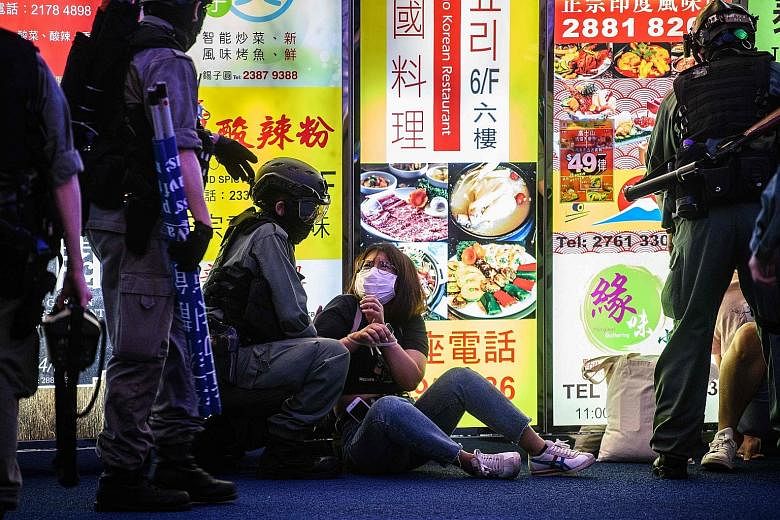HONG KONG • China's planned national security law for Hong Kong could allow for extraditions to the mainland, the city's sole representative to Beijing's top lawmaking body has said.
The comments yesterday by Mr Tam Yiu-chung, a veteran pro-Beijing politician, are significant because it was the fear of extradition to China's party-controlled courts that ignited last year's explosive anti-government protests.
The semi-autonomous city has been convulsed by a year of huge and often violent rallies that began with an eventually aborted criminal extradition Bill.
The protests morphed into a popular call for democracy and police accountability.
Beijing says the new national security law for Hong Kong is needed to end the political unrest and restore stability.
But critics see it as potential knock-out blow for Hong Kong's cherished freedoms and autonomy.
In an interview with Radio Television Hong Kong (RTHK) radio yesterday, Mr Tam said he believed some prosecutions alleging foreign interference, or cases involving diplomatic issues, could be handled by China's central government.
Asked if that might result in Hong Kongers extradited to the mainland for trial, he said: "If the central government thinks it is necessary to do so, not to be handled in Hong Kong courts, then that is an option."
Mr Tam's comments came after Mr Deng Zhonghua, the deputy of China's Hong Kong and Macau Affairs Office, said on Monday that Beijing will have jurisdiction over some "extremely rare" national security cases once the law is passed.
Under a One Country, Two Systems agreement ahead of the handover by Britain, China agreed to let Hong Kong maintain certain liberties and autonomy until 2047 - including legislative and judicial independence.
Pan-democrat lawmakers yesterday criticised constitutional affairs secretary Erick Tsang for suggesting that anyone who opposes the national security law will be disqualified from September's Legislative Council (Legco) elections, said RTHK.
Mr Tsang, in interviews with several newspapers, said it was doubtful that such people, as well as those who want to "paralyse government operations", would be genuine in swearing allegiance to Hong Kong Special Administrative Region as required.
After attending a Legco meeting yesterday, he told reporters, however, that he does not make decisions on the candidacy of election hopefuls, saying that is up to returning officers to consider.
The Standing Committee, the Chinese Communist Party organ that will draw up the new law, is sitting today and tomorrow.
AGENCE FRANCE-PRESSE

